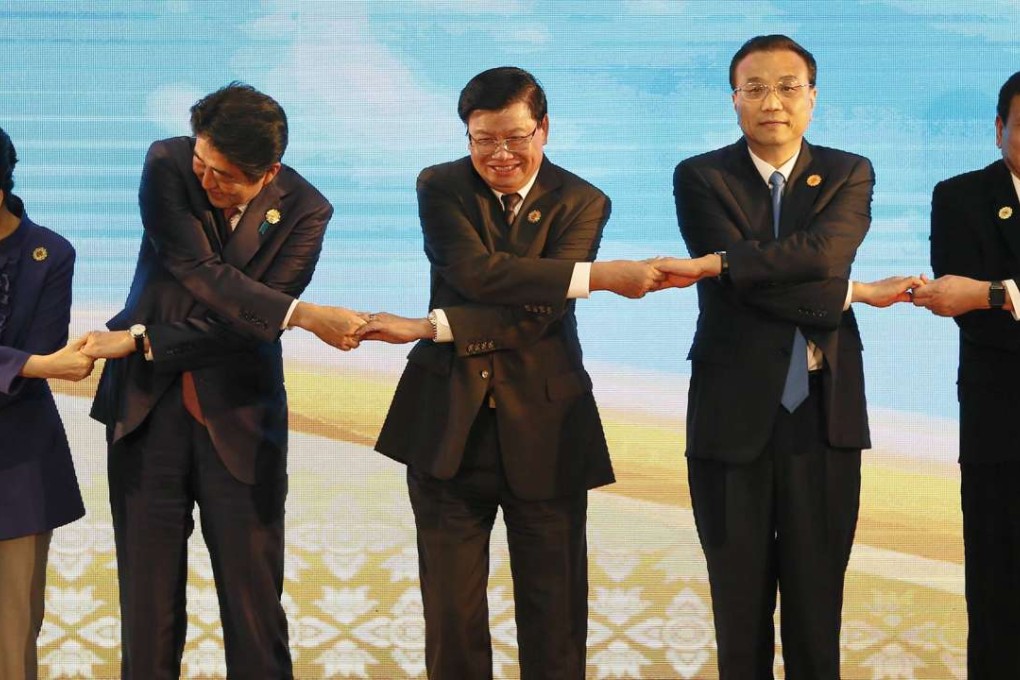Advertisement
China and Asean bloc make progress on maritime disputes
China and leaders from the Southeast Asian bloc are working ‘substantively’ towards early adoption of code of conduct for South China Sea
Reading Time:2 minutes
Why you can trust SCMP

China and Asean are making progress on a legally binding code of conduct in the South China Sea, amid fresh accusations Beijing is pushing ahead with land reclamation in the disputed waters.
Premier Li Keqiang said the situation in the South China Sea was “heading towards a positive direction”, and that China was discussing adopting the code of conduct with Asean members.
Watch: South China Sea tensions take centre stage at Asia Summit
Advertisement
Advertisement
A statement on Asean-China dialogue released on Wednesday said the two sides were working substantively towards an early adoption of the code of conduct, based on consensus.
Advertisement
Select Voice
Choose your listening speed
Get through articles 2x faster
1.25x
250 WPM
Slow
Average
Fast
1.25x